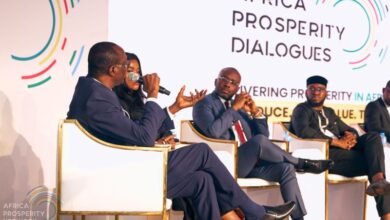
By Carine Gazier*
With Donald Trump set to return to the White House in early 2025, the world is bracing for the next chapter of his “America first” foreign policy, and Africa is no exception. Amid fears of foreign aid cuts and hopes for fresh business deals, emerging markets are on edge. While his first term offers a preview of what a second term could bring, Trump himself blames a « deep state » of career bureaucrats and disloyal advisers for holding him back — leaving us to question just how far he’ll push his agenda if unrestrained. However, one thing is clear, Trump — the dealmaker president — will double down on his transactional approach, putting investment and trade at the forefront of US-Africa relations.
Same, but different: Trump’s business-focused approach
U.S. policy toward Africa has largely been consistent across administrations, with the continent still far from a top priority in the Oval Office. While a major policy overhaul is unlikely, Trump’s style is expected to diverge significantly from Biden’s. Where the previous administration cloaked its objectives in the language of aid and diplomacy —promising to amplify Africa’s voice in global forums, including in the UN Security Council where Africa still lacks a permanent seat — Trump’s blunt, transactional style might land differently. As African nations increasingly demand equal footing as business partners, Trump’s unapologetic pragmatism could strike a chord, offering a more direct and business-focused approach.
Revitalizing US-Africa trade: Will Trump make the move?
For U.S.-Africa business ties to reach full potential, key initiatives — Prosper Africa, the Development Finance Corporation (DFC), and the African Growth and Opportunity Act (AGOA) — need a serious reboot. Though the Trump administration may be reluctant to overhaul these programs, the strategic goal of countering China’s Belt and Road influence in Africa could tip the scales. These programs were designed to drive private-sector engagement and boost trade, but results have been underwhelming — AGOA, for instance, pulled in just $9.7 billion of the $29.3 billion total U.S. imports from Africa in 2023, while China’s imports from Africa hit $109 billion. With AGOA’s expiration looming in 2025, Trump may push for renewal, but real success will require serious structural fixes. Shifting AGOA’s focus from a narrow emphasis on raw materials to Africa’s growth sectors, like value-added manufacturing and clean energy, could strengthen U.S.-Africa ties. The question is, will the Trump administration take this strategic leap? Exploring deeper bilateral partnerships with individual African nations could also play a key role, allowing for more targeted engagement and complementing broader multilateral efforts.
Trump’s mineral power play: Competing for Africa’s strategic resources
Trump is highly anticipated to double down on securing Africa’s critical mineral supply chains — essential for everything from consumer electronics to defence technologies. China currently dominates the African mining sector, controlling key minerals like cobalt and lithium. Russia isn’t sitting on the sidelines either, aggressively expanding its reach in the sector, while countries like Canada and the UAE are all jockeying for position. For the U.S., locking down these minerals isn’t just an economic win — it’s a national security imperative. While Trump is likely to bolster domestic mineral production, the fact remains: many of these critical resources are still sourced from Africa. African nations now hold the cards to choose their partners wisely and lock in the best long-term wins. One thing is certain: to win them over, the new administration will need more than quick, short-term deals.
As Trump revs up for round two, will his signature dealmaker style finally crack the code for U.S.-Africa trade? With global competition ramping up, African nations now hold significant strategic leverage and are in the driver’s seat. Whether the Trump administration can shift gears to win their favour and lock in long-term partnerships is the big question to watch in the years ahead.
*Carine Gazier is a geopolitical expert specialising in the analysis of political, economic, and security dynamics in Sub-Saharan Africa and emerging markets. Her expertise sheds light on the strategic challenges and opportunities shaping these rapidly evolving regions.





